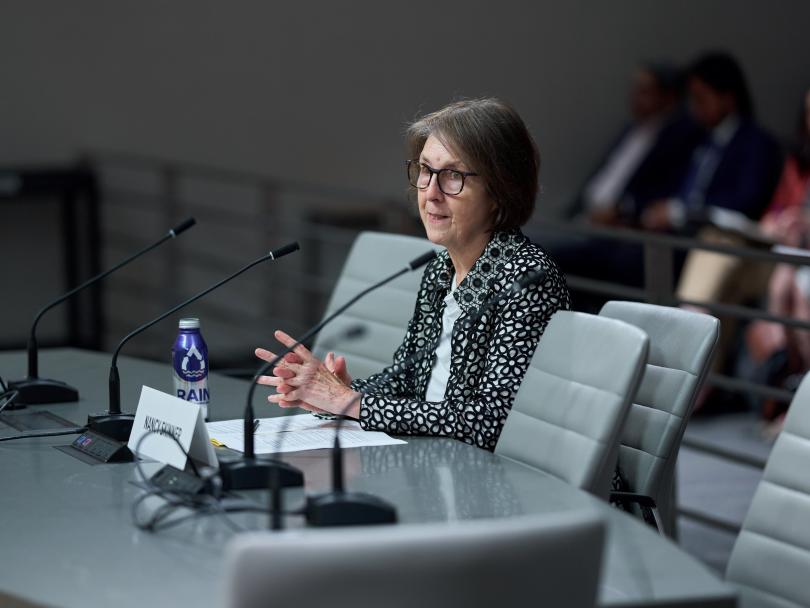For Immediate Release: June 16, 2025
SACRAMENTO — The California State Senate has voted to confirm Commissioner Nancy Skinner’s appointment to the California Energy Commission by Governor Gavin Newsom.
The Governor appoints, with Senate confirmation, five commissioners to staggered five-year terms. The commissioners must come from and represent specific areas of expertise: law, environment, economics, science and engineering, and the public at large.
The Senate voted on May 27 to confirm Skinner’s first term as the CEC member representing science and engineering. Skinner, who was appointed in January, is the lead commissioner for clean transportation, ports and industrial decarbonization, as well as the associate commissioner for efficiency.
“To be appointed to the Energy Commission is like coming full circle from the start of my public service career,” she said at her May 14 hearing before the Senate Rules Committee.
She was referring to her first public service role which was serving on the City of Berkeley’s citizen energy advisory commission when she was a graduate student at the University of California, Berkeley.
Her decades-long public service career includes serving on the Berkeley City Council from 1984 to 1992 and on the elected board of the East Bay Regional Park District. She was elected to the California State Senate from 2016 to 2024 and to the California State Assembly from 2008 to 2014.
Throughout her career, she has worked on legislation supporting California’s clean energy leadership. Her signature legislation includes Assembly Bill 2514, which laid the foundation for large-scale battery storage projects across California.
She also introduced Senate Bill X1-2, one of the two laws that Governor Gavin Newsom signed to help the state better understand and respond to gasoline price spikes. The laws included transparency and oversight measures to increase accountability of the petroleum industry.
At the CEC, she is working on efforts to transform the state’s transportation sector to zero-emission technologies and deploying the requisite infrastructure to improve air quality and public health and support economic growth. During her hearing, she said she understands the concerns over affordability.
“The objective is to maximize the benefit or output for each unit of energy that is produced,” she said. “That, of course, reduces cost to the entire system ... it's the wisest way to approach the challenge of energy affordability.”
In addition to her legislative experience, Skinner has held executive positions at non-profits such as The Climate Group and was a founding member of ICLEI - Local Governments for Sustainability.
She received her bachelor of science in conservation and her masters of arts in education from UC Berkeley. She was a lecturer at UC Berkeley’s Goldman School of Public Policy and a senior advisor at the Energy and Efficiency Institute at University of California, Davis.
With a background in education and policy, Skinner wants the CEC’s work to be accessible to all.
“I'm also very committed to working to make sure that CEC's work is accessible and user friendly, that our reports can be understood by non-experts,” she said. “I want everyone to be able to read our materials and know what we're talking about.”
Her May 14 hearing with the Senate Rules Committee can be found on the California State Senate web page.
###
About the California Energy Commission
The California Energy Commission is the state's primary energy policy and planning agency. It has seven core responsibilities: advancing state energy policy, encouraging energy efficiency, certifying thermal power plants, investing in energy innovation, developing renewable energy, transforming transportation, and preparing for energy emergencies.
Newsroom
Media Contact
Media and Public Communications Office
MediaOffice@energy.ca.gov
(916) 654-4989

